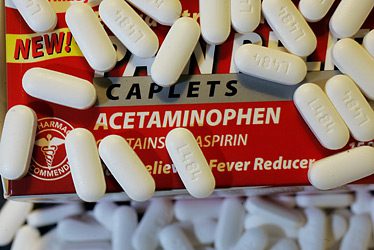 For training purposes and to make sure we’re doing the best job we can to assist people, we will from time to time listen to recordings of calls we receive. Most calls are relatively standard but occasionally (usually during ER hours) we receive calls from people who have found their pets have gotten into some pretty interesting mischief. “Uh… my dog got into my… uh… brother’s… friend’s… stash of marijuana” (we’ll give them the benefit of the doubt and assume it was for medicinal purposes) is not an uncommon explanation we’ve heard. “My dog just ate a 1lb bag of chocolate-covered raisins and isn’t looking good,” is another example.
For training purposes and to make sure we’re doing the best job we can to assist people, we will from time to time listen to recordings of calls we receive. Most calls are relatively standard but occasionally (usually during ER hours) we receive calls from people who have found their pets have gotten into some pretty interesting mischief. “Uh… my dog got into my… uh… brother’s… friend’s… stash of marijuana” (we’ll give them the benefit of the doubt and assume it was for medicinal purposes) is not an uncommon explanation we’ve heard. “My dog just ate a 1lb bag of chocolate-covered raisins and isn’t looking good,” is another example.
As pet owners we know that dogs and cats can get into a lot of items we leave laying around the house, some of these are foods and medications. According to the Pet Poison Helpline, the number one call they receive is for dogs who have eaten chocolate. Number 5 may be surprising: it was for products containing Xylitol, which is found in sugar-free gums and  candies. Number seven was Acetaminophen and #9 was amphetamines such as found in ADD/ADHD medications. Out of the top ten toxins for cats, the 8-10 spots were reserved for human medications: amphetamines, acetaminophen and ibuprofen. Some of these items, if consumed in a small quantity, may not affect your dog or cat but the problem is our pets don’t know when to stop and they’re not going to eat just one Raisinette.
candies. Number seven was Acetaminophen and #9 was amphetamines such as found in ADD/ADHD medications. Out of the top ten toxins for cats, the 8-10 spots were reserved for human medications: amphetamines, acetaminophen and ibuprofen. Some of these items, if consumed in a small quantity, may not affect your dog or cat but the problem is our pets don’t know when to stop and they’re not going to eat just one Raisinette.
So, what to look for when I think my pet may have ingested a toxin?
The Pet Poison Helpline states, “Signs of poisoning in dogs and cats can range tremendously based on the underlying poison.” They give us some general symptoms to look for listed below.
Next week we’ll touch on what types of indoor and outdoor plants may be hazardous and ways you can deter your pet from eating them!
Gastrointestinal signs

- Vomiting
- Diarrhea
- Drooling/hypersalivating
- Lack of appetite
- Nausea
Internal bleeding
- Coughing of blood
- Vomiting blood
- Pale gums
- A racing heart rate
- Weakness or lethargy
- Collapse
Kidney failure
- Halitosis (“uremic” breath)
- Lack of appetite
- Vomiting
- Diarrhea
- Excessive thirst or urination
- Absence or decreased urination
Liver failure
- Jaundice/icterus/yellow discoloration to the gums
- Weakness or collapse secondary to a low blood sugar
- Mental slowness, acting abnormally
- Vomiting
- Diarrhea
- Black-tarry stool (melena)
Recent Posts
About Us
Ann Arbor Animal Hospital is a locally-owned animal hospital operating for over 90 years in Ann Arbor, MI.
